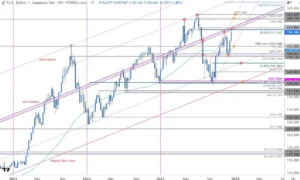Citigroup has established a new team in Tokyo to target in an effort to reach the 9,000 mid-sized businesses in Japan that have international business demands.
TakeAway Points:
- Citigroup has established a new team in Tokyo with the goal of providing customised financial solutions under the Citi Commercial Bank brand to Japan’s 9,000 mid-sized businesses.
- Owing to anticipated power demand, Microsoft is investing $2.9 billion to construct AI data centres in Japan, increasing utility and industrial shares.
- Despite the fact that Chinese companies like Gongniu and Anker now have lower international revenue than Japanese ones, HSBC analysts see tremendous global potential for these companies.
Citigroup’s new group in Japan
Citigroup Inc. is making a strategic move to strengthen its business with medium-sized companies in Japan. The Wall Street Bank has established a dedicated team in Tokyo to offer tailored products under the Citi Commercial Bank brand. These products range from global cash management to financing solutions. Yutaka Naito will lead this new group, which aims to serve firms with cross-border business needs.
This initiative is part of Citigroup’s broader strategy, initiated two years ago, to hire hundreds of workers worldwide to boost its commercial brand. The bank has already launched similar services in countries like France, Germany, Canada, and other parts of Asia. Japan, with around 9,000 mid-size companies, presents a significant opportunity. The Japanese government is also supporting these entities by offering capital investment subsidies and assistance for foreign expansion.
Gunjan Kalra, head of Japan, North Asia, Australia, and South Asia for Citi Commercial Bank, stated that “the latest move reaffirms our commitment to serving the Japanese market.” She added that Japan is “home to many new and innovative companies, with global linkages and cross-border business needs.”
Microsoft’s Japanese AI Initiative
Microsoft Japan President Miki Tsusaka highlighted Japan’s rapid adoption of new artificial intelligence tools. According to Tsusaka, the country’s digitalization efforts, accelerated by the pandemic, have helped Japan catch up in the tech sector.
“The Japanese have caught up. And I think it will continue to accelerate at this point because the technology enables things that we haven’t been able to do,” she said.
Microsoft is investing $2.9 billion over the next two years to scale up its AI data centers in Japan. This announcement has positively impacted the country’s utility and industrial shares, driven by expectations of rising power demand.
Tsusaka also emphasized the importance of cybersecurity, stating, “You can’t use AI without security. It’s security, security, security. And then you get to use AI.”
The company is working closely with the Japanese government and businesses to ensure the responsible and safe deployment of technology. Tsusaka believes that generative AI has the potential to revolutionize the tech sector, surpassing previous technological advancements like the internet and mobile phones.
Global Potential of Chinese Companies
HSBC analysts have identified significant global potential for Chinese companies, drawing comparisons with Japanese firms. For mainland China-listed companies, only 11.7% of their total revenue last year came from outside the country. In contrast, 35.3% of revenue for companies in Japan’s Nikkei 225 came from overseas.
Chinese companies have been increasingly looking to expand abroad due to slowing domestic growth. Sectors like electric cars and consumer products have shown particular promise.
UBS Asia Pacific equity analyst Christine Peng noted, “We believe structural growth opportunities from consumer companies’ global expansion remain underappreciated by investors, especially in EM markets.”
HSBC’s report highlighted several Chinese companies with strong global potential, including Gongniu, Anker, Zhejiang Dingli, and Snibe. These companies have been making strides in international markets, setting up subsidiaries and recruiting distributors worldwide. However, the contribution of overseas revenue to their total earnings remains relatively low compared to their Japanese counterparts.



































